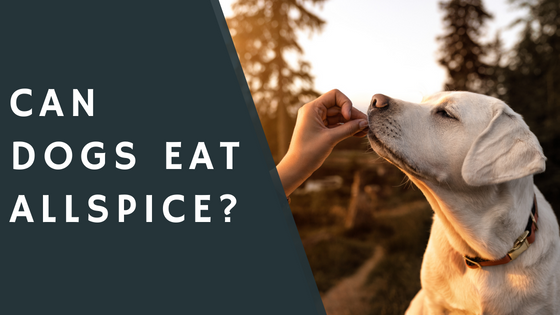There is some debate as to whether or not Allspice is safe for dogs to eat, as they may be sensitive to its flavor.
Can Dogs Eat Allspice?
Dogs can safely eat Allspice in small quantities. Allspice is derived from the dried, brown berry of the Pimenta dioica tree. The berry is ground into a powder, which is then used to flavor foods. When used in moderation, Allspice can be a healthy addition to your dog’s diet.
In this detailed blog post, we’ll tell you everything you need to know about Allspice and your furry friend, so keep on reading to learn more.

See Also: What Is Allspice?
Benefits of Allspice for Dogs
Allspice is a spice that can be beneficial for dogs. An anti-inflammatory and antioxidant spice, allspice has a variety of health benefits. Allspice can also help to improve digestion and relieve gas and bloating.
Allspice Recipes for Dogs
Allspice is a popular spice that can use in many different recipes. It has a unique flavor that makes food taste better. But, when it comes to feeding your dog, you may wonder if Allspice is safe.
Eugenol can be toxic to dogs in large quantities and is found in Allspice. Therefore, it’s best to use Allspice sparingly when cooking for your furry friend.
We’ve got you covered if you’re looking for allspice recipes that are safe for dogs. Check out the following three recipes that use Allspice in moderation:
- Allspice Chicken: This recipe uses Allspice to flavor chicken breasts. Season the chicken with salt, pepper, and Allspice before cooking.
- Allspice Sweet Potatoes: Add some allspice to your dog’s sweet potatoes for a flavorful twist on a classic favorite. Bake or microwave sweet potatoes as usual, then sprinkle with Allspice before serving.
- Allspice Dog Treats: These homemade treats are perfect for spoiling your pup! Mix flour, oats, peanut butter, egg, and Allspice, then bake at 350 degrees Fahrenheit for about 20 minutes.
Allspice Alternatives for Dogs
You have a few options if you’re out of Allspice and need a substitute for your dog-friendly recipe. You can use cloves, nutmeg, or cinnamon as an allspice alternative. Use a fraction of the amount of Allspice called for in the recipe.
For example, if the recipe calls for one teaspoon of Allspice, use 1/4 teaspoon of cloves, nutmeg, or cinnamon.
How Much Is Allspice Good for Dogs?
Allspice is a popular spice used in cooking, but how much a dog can eat dog? Allspice is safe for dogs to consume in small amounts. In addition, Allspice is not toxic to dogs and will not cause any adverse effects.
However, Allspice is high in sodium and should not be given to dogs regularly. Instead, Allspice can be an occasional treat if you want to add a little flavor to your dog’s food.
is allspice toxic to dogs and How to Introduce Allspice to Your Dog?
No, allspice is not toxic to dogs. However, it is important to keep in mind that dogs can have allergies to certain spices, so it is recommended to check with your veterinarian before feeding allspice to your pet.
If you’re considering introducing Allspice to your dog, you should keep a few things in mind. First, Allspice is a spice that can be found in many foods, including desserts, and it’s also used in some forms of traditional medicine.
When giving Allspice to your dog, it’s essential to start with a small amount and work your way up. It would help if you also kept an eye on your dog for adverse reactions, such as vomiting or diarrhea.
If your dog does not seem to tolerate Allspice well, it’s best to avoid giving it to them altogether.
In How Much Amount Allspice Is Good for a Dog?
While Allspice is not toxic to dogs, it is not recommended as part of their diet. Allspice can cause gastrointestinal upset in dogs and should be avoided.
If your dog does consume Allspice, monitor them for signs of digestive distress and contact your veterinarian if any problems occur.

Conclusion
In conclusion, while there is no definitive answer to whether or not dogs can eat Allspice, the consensus is that it is generally safe for them to do so.
However, as with any food, it is always best to avoid caution and consult with your veterinarian before feeding your dog anything new.
